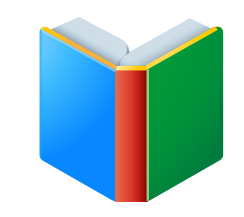Last November was a landmark month for the publishing industry and creators everywhere. Back in 2004 Google announced it would partner with several universities to scan their entire collection of books. It began with six universities, but grew quickly to include sixteen more, and soon after their announcement publishers and writers protested Google’s plan. Most felt that Google would first need permission from each individual publisher and writer. Less than a year later, The Authors Guild and The Association of American Publishers filed two separate suits against Google citing copyright infringement. Google countered these lawsuits stating that they were acting within the “Fair Use” guidelines.
Last November the New York courts dismissed the lawsuit brought forward by the Authors Guild against Google, citing that what the internet giant was doing fell under the “Fair Use” category of copyright law. For many, the ruling might be the only thing that matters, but it’s important to understand how the court came to it’s conclusion. Their decision has undoubtedly opened a can of worms that won’t be going away anytime soon. It’s especially important for authors and publishers alike to know how this court case might directly affect them.
It’s important to understand what “Fair Use” means. According to the US Government,“The distinction between what is fair use and what is infringement in a particular case will not always be clear or easily defined. There is no specific number of words, lines, or notes that may safely be taken without permission. Acknowledging the source of the copyrighted material does not substitute for obtaining permission.”
The website gives four factors to consider when determining if a certain usage is fair:
- 1. The purpose and character of the use, including whether such use is of commercial nature or is for nonprofit educational purposes.
- 2. The nature of the copyrighted work.
- 3. The amount and substantiality of the portion used in relation to the copyrighted work as a whole.
- 4. The effect of the use upon the potential market for, or value of, the copyrighted work.
A settlement was finally reached in 2008 between Google and the publishing industry with Google agreeing to compensate authors and publishers in exchange to scan millions of books and make them available to the public. Google would pay 125 million and also be allowed to continue scanning books. Google would also be able to sell entire works with the copyholder receiving two-thirds of the profits and Google only receiving one-third.
By November, Google had scanned over 7 million items, but in December they announced they would also begin to scan magazines into their Google Books library. In December of 2010 Google launched Google Editions, their own version of ebooks. Unlike Amazon or Barnes & Noble, there was no specific ereader device that readers had to purchase in order to gain access to their ebooks.
In 2011 the judge hearing the case rejected the $125 million settlement citing it raised copyright and antitrust issues by giving Google a “de facto monopoly” to copy books en masse. The publishers eventually settled out of court in October 2012. By then Google had already scanned 12 million books.
In 2013 the same judge sided with Google in Authors Guild v. Google stating that:
It advances the progress of the arts and sciences, while maintaining respectful consideration for the rights of authors and other creative individuals, and without adversely impacting the rights of copyright holders. It preserves books, in particular out-of-print and old books that have been forgotten in the bowels of libraries, and it gives them new life. It facilitates access to books for print-disabled and remote or underserved populations. It generates new audiences and creates new sources of income for authors and publishers. Indeed, all society benefits.
It may revive and preserve out of print and forgotten books, but what about the books with authors that are still alive? Don’t they deserve compensation? These questions still being raised and many of the authors have stated they will appeal the court’s decision.

